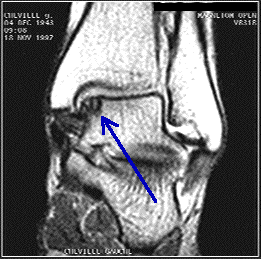Are you putting yourself at risk?
“Risk?” Yes, patients place themselves at risk daily
by lying about their medical history with their doctors. And what is a lie you ask?
Definition in Oxford Advanced Learner's Dictionary
Lie
Syllabification:
lie
Pronunciation:
/lī/
noun
1.
An intentionally false statement,
1.1
Used with reference to a situation involving deception or founded on a mistaken
impression,
1.2
(Of a thing) present a false impression; be deceptive.
As
a physician, we are concerned with our patients’ health, wellbeing, and
recovery. But I am watching a large body
of our patients, both young and old, head towards a path of lying about their
medical history.
·
According to a 2009 survey, conducted by General Electric Co,of
more than 2,000 patients and 1,200 care providers, 28% of patients admitted to
occasionally lying or not sharing information with their health care provider.
·
A WebMD
survey in 2004 found that 38 percent of patients lied or “stretched the truth”
about following their doctor’s orders, while 32 percent lied about their diet
or how much they exercised. Another 22 percent lied about smoking, 17 percent
lied about sex, 16 percent lied about their intake of alcohol, and 12 percent
lied about recreational drug use.
·
Younger
patients — aged 25 to 34 — are more likely to lie about recreational drug use,
sexual history, and smoking than patients who are 55 or older, while men are
significantly more likely to lie about how much they drink than women,
according to the survey.
·
A nonprofit
California HealthCare Foundation in 2005 found that one in eight patients
engaged in behavior presenting a potential risk to their health, to protect
their personal privacy. That includes avoiding their regular doctor, asking
their doctor to fudge a diagnosis, paying for a test because they didn’t want
to submit an insurance claim, or avoiding a test altogether.
As
physicians, we have to get to the core reason for the lie, and there are
several. The most commonly cited excuses
are:
- Patients
feel embarrassed or fear that they will disappoint their doctor.
- Patients
report their self-diagnosis as fact.
- Patients'
concern about electronic medical records or that employers, insurance
companies, or some other authority will learn about their condition.
- Patients
worry that they will be judged by their physician.
To this
end, we must address these issues and resolve them. As your physician, I am concerned for your safety. I worry about:
- · prescribing a wrong medication
- · causing damage to your kidneys or liver
- · missing key information from your past
- · have poor surgery/treatment outcomes
- · not healing you
So let’s
work together to improve your time with me, your other doctors, and your health
by coming to your appointments with an open mind and your honest anxieties.
Start by
being prepared, and so will we. Take a photo of your medication list and
medical history with your phone and store it. Send it to a friend or family member
you trust, who can get the information to us if we need it quickly. We will make sure to keep this process simple
and efficient.
Be open
about your past and your ideas regarding your medical history. Please remember, if you are taking a
medication, it is because there is a problem; list that problem. Your primary
care doctor did not place you on medication for hypertension prophylactically.
You have hypertension that is controlled by high blood pressure medication.
The
internet is fabulous. Reading articles
on the internet does not mean you can diagnosis yourself. It does mean you should bring these topics up
with your physician to discuss. It is refreshing
when a patient beings in the literature and we schedule an appointment to
review these concerns.
Do not
lie about your past. This can kill you.
Early in my practice, I had a wound care patient I was treating. The
wounds would come and go; different injuries resulted in new appointments. It wasn’t
until she was admitted to the hospital that I realized the depth of her lies.
She was an alcoholic with severe cirrhosis of the liver. On all of her history forms
she failed to divulge that information to me and several other physicians; her gastroenterologist
and cardiologist where the only physicians that knew. She could have died from taking an
anti-inflammatory that I prescribed her during one of her “falls”.
Dear
Patients,
When
asked how I live my life, quote Stephen Grellet,
“I shall pass through this world but once. Any good
therefore that I can do or any kindness that I can show to any human being, let
me do it now. Let me not defer or neglect it, for I shall not pass this way
again.”
Dr.
Jenneffer Pulapaka, DPM

Comments
Post a Comment